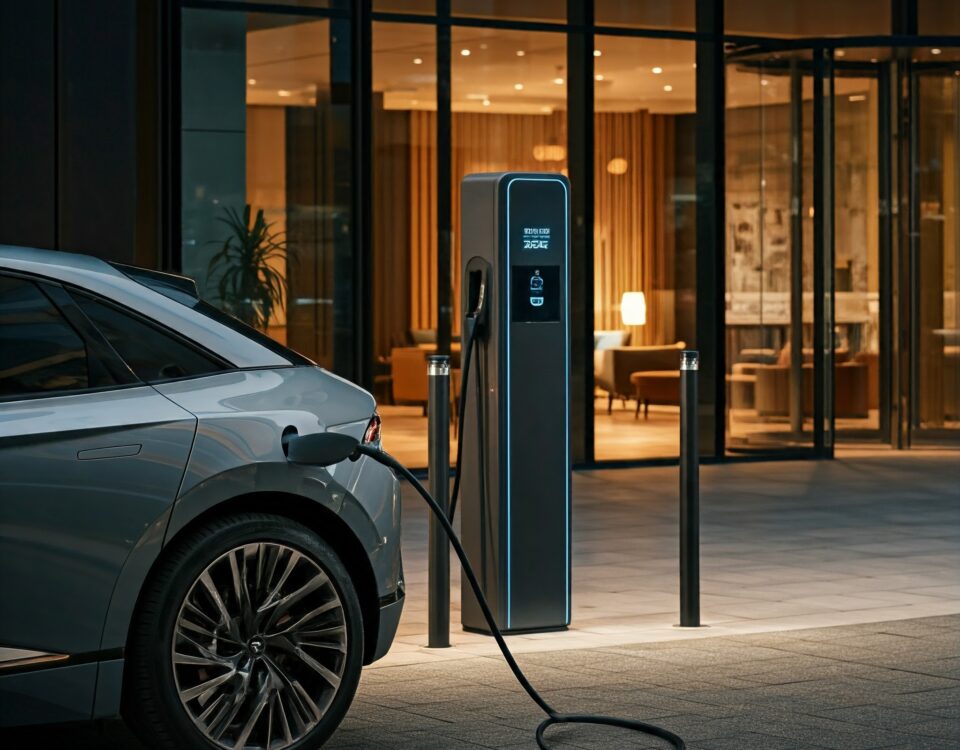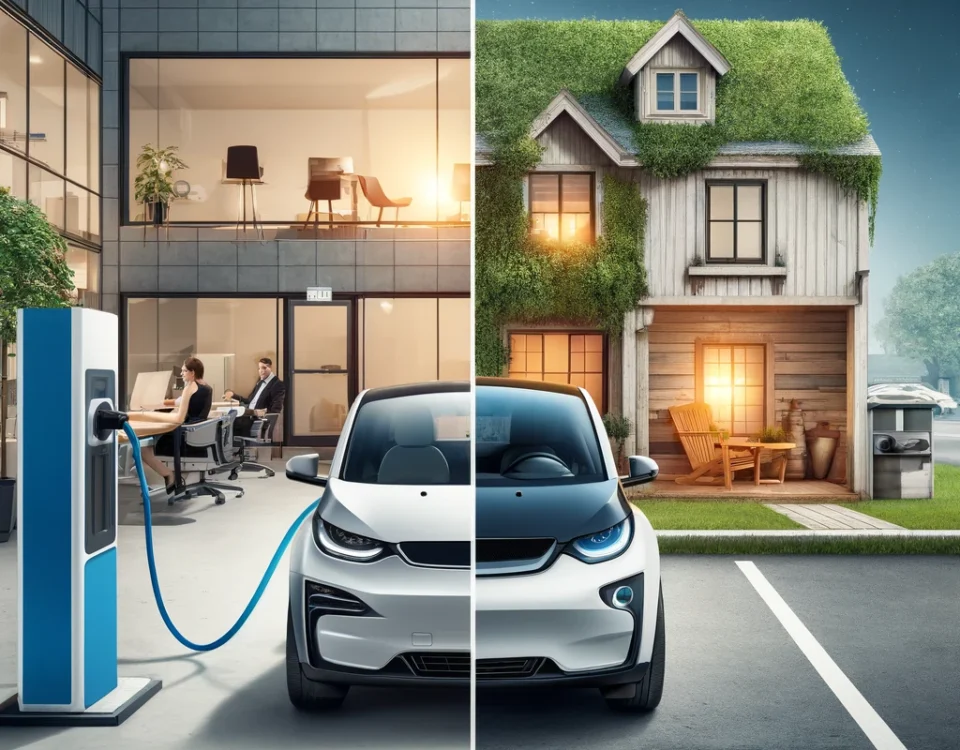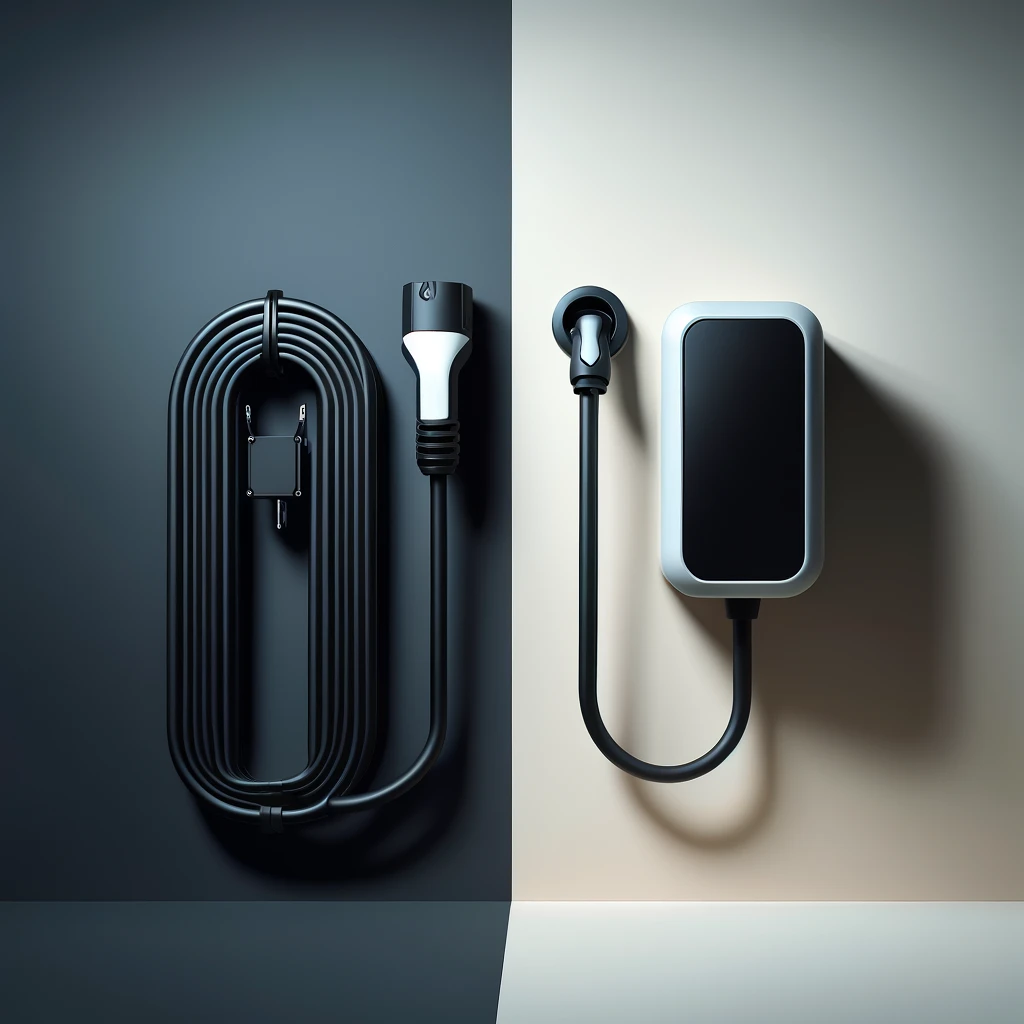
The most convenient method to charge an electric car is at home, overnight, when you don’t need it. In the morning, you’ll find the battery fully charged and the car ready to go. In this article, we will explore all available options for charging your electric car at home, detailing the advantages and disadvantages of each option.
Electric car charging stations are divided into two main categories:
- Portable charging stations – with a portable cable
- Fixed charging stations – mounted on the wall
Portable Charging Stations
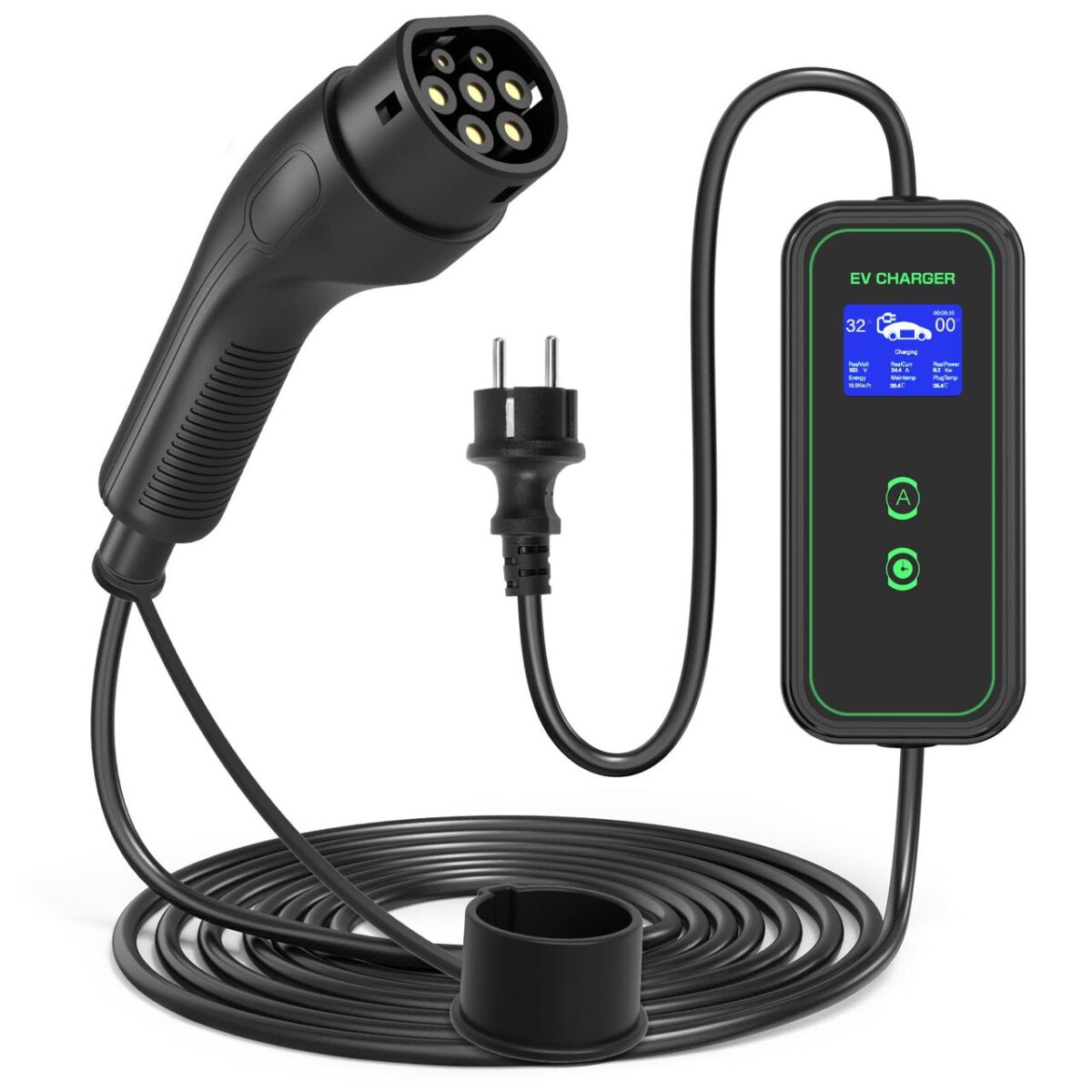
Portable stations are not permanently fixed to the wall and consist of a cable with a charging block in the middle. These stations can be single-phase or three-phase.
Single-phase stations connect to a regular socket, similar to a household appliance. They are usually provided with the electric car or plug-in hybrid and are the slowest charging method, offering around 3.5 kW/h. For example, a Tesla with a 75 kW battery will require 21 hours to charge fully.
In the past year, various models of single-phase mobile stations have appeared on the market, priced between 200 and 300 euros. They connect to a regular socket. To use such a station, the electrical circuit in the house/parking area must be safe and well-configured. Before use, consult a licensed electrician to check:
- The quality of the socket;
- The electric cable is directly connected to the electrical panel, without other sockets in between;
- Proper grounding of the socket;
- Installation of a 16-amp breaker in the electrical panel;
- Presence of a residual current device in the electrical panel for protection against DC leakage.
Check the socket and charging station daily for signs of damage, such as black sediment, ash, or melting. If you smell burning or see sparks, stop charging immediately and call an electrician.
Three-phase mobile charging stations are similar to single-phase ones but connect to a three-phase socket, which is more protected against dust and water. These can charge the car up to 22 kW per hour but should not be used consecutively for more than 6 hours to prevent overheating. These stations are popular due to their higher charging speed and can cost up to 350 euros. The station must have temperature sensors and protection against DC leakage. Installing a Type B device in the electrical panel, costing around 200 euros, is necessary to protect against DC leakage.
Fixed Charging Stations
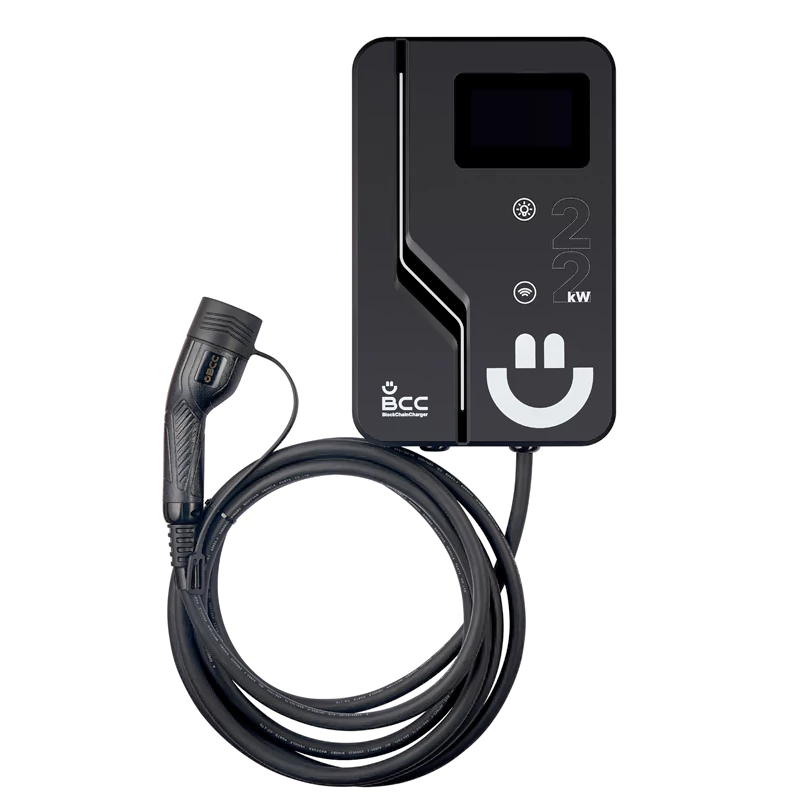
Fixed charging stations offer complete and safe solutions, protected against dust and rain. They can also be single-phase or three-phase. These can be mounted on the garage wall or outside and can charge the car in any weather. Fixed stations can charge multiple cars consecutively, ideal for larger fleets or those who want to share the station with neighbors or turn the station into a business and monetize charging services. They are perfect for simultaneously charging multiple electric or plug-in vehicles in case of a limited power supply. Increase the intelligence of your charging device with dynamic power adjustment solutions to avoid power outages. The module will measure the building’s real-time energy consumption and automatically adjust charging for the connected electric vehicle based on the local grid’s power.
Fixed charging stations, like those from BCC, are connected to the GoCharge app, which allows scheduling charging times and monitoring energy consumption in kilowatts and value in money. Our stations allow for charging power limitation for your EV’s protection and to limit consumption at the expense of other consumers.
For daily use, BCC recommends fixed charging stations. However, a mobile station can be useful for long trips or vacation travel. You can also use it for daily charging, but follow all the safety norms mentioned above.
Conclusion
Choosing between a fixed or portable charging station depends on every user’s needs and preferences. Fixed charging stations offer a complete and safe solution for daily use, while mobile stations are useful for trips and occasional charging. Regardless of the type of station you choose from, safety and certification are essential to ensure efficient and risk-free charging.
Quality and Safety Check
Regardless of the choice made, it is crucial to check for the presence of safety certificates. CE certification is not relevant for safety. Ensure the charging station comes with at least a one-year warranty.
Why Choose a Fixed Station from BCC
The fixed stations offered by BCC are equipped with all necessary safety measures, including protection against leakage. These stations are designed to withstand various weather conditions and can be used at any time of the year. In addition, fixed stations are integrated with the GoCharge app, giving you full control over the charging process and detailed energy consumption monitoring.
Using a Mobile Station as a Complement
Although fixed stations are recommended for daily use, mobile stations are ideal for travel and emergency situations. Ensure you follow all safety norms and consult an electrician to check the correct installation of the socket and electrical circuit.
Choosing the right charging station can make a significant difference in the efficiency and safety of charging your electric car. Opt for quality and well-certified solutions to benefit from an optimal and safe charging experience.
